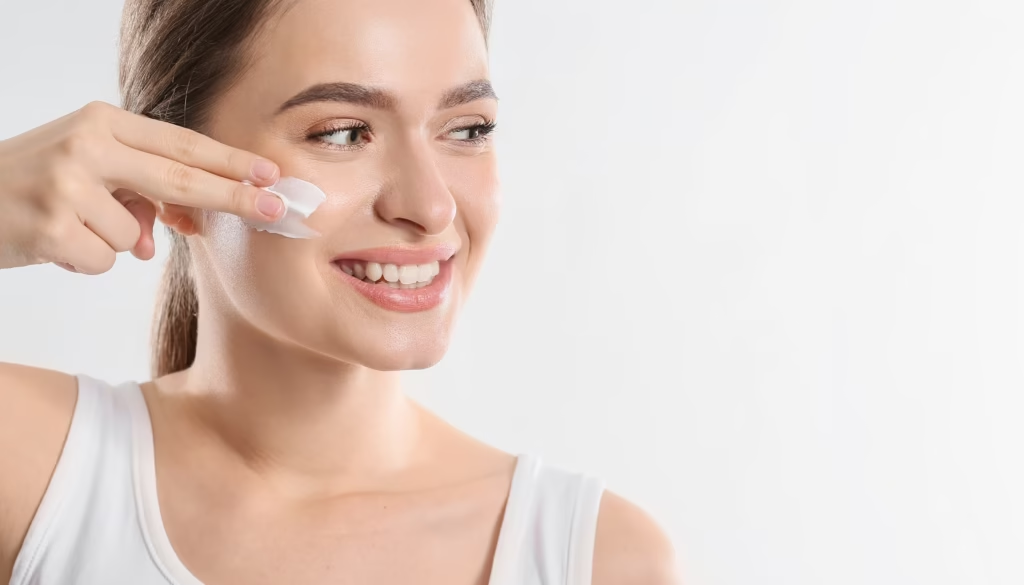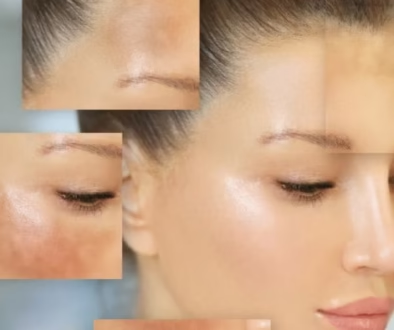Why Skin Care Matters?
Skin care plays a significant role in general health and well-being. Being the largest organ in the body, the skin provides a protective barrier against many harmful environmental factors, including bacteria, UV radiation, and pollution.
Beyond its physiological functions, healthy skin is often associated with confidence and self-esteem, making it an essential aspect of personal care routines. In this article, we explore the importance of skin care, its impact on physical and mental health, and practical steps to maintain glowing, healthy skin.
The Importance of Skin Care
- Protective Barrier Function
The skin is our first line of defense against external threats. It keeps out harmful microorganisms, allergens, and toxins from entering the body.
Proper skin care ensures that the skin remains intact, hydrated, and resilient. Neglecting this care can lead to issues like dryness, cracks, or inflammation, which compromise its protective function and leave the body vulnerable to infections.
- Prevention of Premature Aging
A proper skin care routine will delay visible signs of aging, such as wrinkles, fine lines, and sagging. External factors like prolonged sun exposure, pollution, and smoking accelerate aging.
You can minimize the damage caused by these factors and promote youthful, elastic skin by incorporating sunscreen, moisturizers, and antioxidants like Vitamin C into your daily regimen.
- Boosts Overall Health
Healthy skin is a reflection of your general health. When you care for your skin, you are aiding it in its functions to regulate body temperature, produce Vitamin D, and expel toxins through sweat.
On the other hand, poor care for your skin may result in conditions such as acne, eczema, or fungal infections, which may indicate deeper health issues.
- Mental and Emotional Well-being
Skin health is closely tied to self-confidence. Clear, glowing skin often boosts a person’s self-esteem and social confidence.
Conversely, skin issues like acne, psoriasis, or hyperpigmentation can impact mental health, leading to anxiety, stress, or social withdrawal. Adopting a skin care routine can provide a sense of control, improve your mood, and foster positive self-image.
Key Elements of a Skin Care Routine
- Cleansing
Cleansing is the foundation of any skin care routine. It eliminates all dirt, oil, makeup, and pollutants that gather over the course of a day. Using a gentle cleanser appropriate for your skin type prevents clogged pores and acne. Cleansing twice daily—morning and night—preps the skin so that other products can penetrate into the skin effectively.
- Moisturizing
To retain elasticity and avoid dryness, one’s skin needs to stay well-moisturized. Moisturizers also function as an occlusive layer of a barrier to hydrate while protecting the barrier from harsh environmental effects. Non-comedogenic lightweight moisturizers should be used in oily and acne-prone skins whereas thicker creams would suit well for dry and mature skin types.
- Sunscreen
Arguably, sunscreen is the most important step in a skin care routine. It protects the skin from those harmful UV rays, causing sunburns, early aging, and even cancer. Dermatologists often recommend applying broad-spectrum sunscreen with at least SPF 30 daily, regardless of whether it is a cloudy day or spent indoors.
- Exfoliation
Exfoliating once or twice a week helps remove the dead skin cells that can plug pores and make the face look dull. There is physical exfoliation, either with scrubs or with brushes, and chemical, using acids like AHAs or BHAs. Selecting the right exfoliant according to your skin type ensures skin that glows and has a smooth texture without irritations.
- Targeted Treatments
For specific concerns like acne, dark spots, or fine lines, targeted treatments such as serums or spot treatments can be included in your routine. Ingredients like retinol, niacinamide, and hyaluronic acid address various skin issues, providing tailored solutions to individual needs.
Common Skin Care Myths
- Myth: Natural Ingredients Are Always Better
While natural ingredients such as aloe vera or tea tree oil are great, they are not all suitable to every skin type. Sometimes, some of the natural constituents can cause allergic reactions, irritation, and so forth. Patch test and then research before applying any ingredient onto your skin.
- Myth: Oil Skin Does Not Require Moisturizer
Even oily skin needs moisturizing. Avoiding moisturizer makes the skin try to overcompensate, creating even more oil, making it worse. Use lightweight, gel-type moisturizers for oily skin types.
- Myth: Skin Care Products Work Instantly
Skincare requires consistency and patience. Most products take weeks, sometimes months, to produce observable results. Quick fixes tend to come with risks of irritation or damage in the long term.
How Diet and Lifestyle Affect Skin
- Nutrition
What you eat significantly impacts your skin’s health. A diet rich in antioxidants, vitamins, and healthy fats promotes clear, glowing skin. Foods like berries, nuts, and leafy greens fight oxidative stress, while omega-3 fatty acids improve skin elasticity and hydration. Avoid excessive sugar and processed foods, which can trigger breakouts and inflammation.
- Hydration
Drinking enough water keeps your skin plump, hydrated, and radiant. It will look dull if it is dehydrated, and fine lines and wrinkles will easily form. Hydrate by drinking at least 8 glasses a day to keep your skin in its best shape ever.
- Sleep
Getting adequate sleep allows the skin to repair itself overnight. During sleep, the body produces collagen, which is essential for skin elasticity and healing. Sleep deprivation can lead to dark circles, puffiness, and premature aging.
- Stress Management
Stress triggers the release of cortisol, a hormone that can worsen conditions like acne and eczema. Incorporating stress-relief techniques such as meditation, yoga, or exercise into your routine can benefit your skin and overall health.
Tailoring Skin Care to Different Needs
- Age
Skin care changes with age. For young skin, it is all about preventing acne and oil. Mature skin needs hydration, anti-aging treatments, and sun protection. Thus, using products suitable for a particular age will ensure the best results.
- Climate and Environment
Your environment also determines your skin care routine. Dry climates demand heavier moisturizers, while humid conditions require lightweight, non-greasy products. Urban areas with high pollution levels demand a more thorough cleansing and antioxidant protection.
- Skin Type
Knowing your skin type whether oily, dry, combination, or sensitive is important for choosing the right products. Using products that do not suit your skin type can worsen issues rather than resolve them.
Skin care is about more than just the cosmetic. It pertains to the overall health and the self-care. A healthy routine not only protects from environmental damage but also lifts up the confidence and, in turn, emotional wellbeing.
Understanding the importance of skin care and developing healthy habits can help achieve radiant healthy skin at any age. Remember, skin care is a journey that requires patience, dedication, and self-awareness, but results make all the effort worth it.



